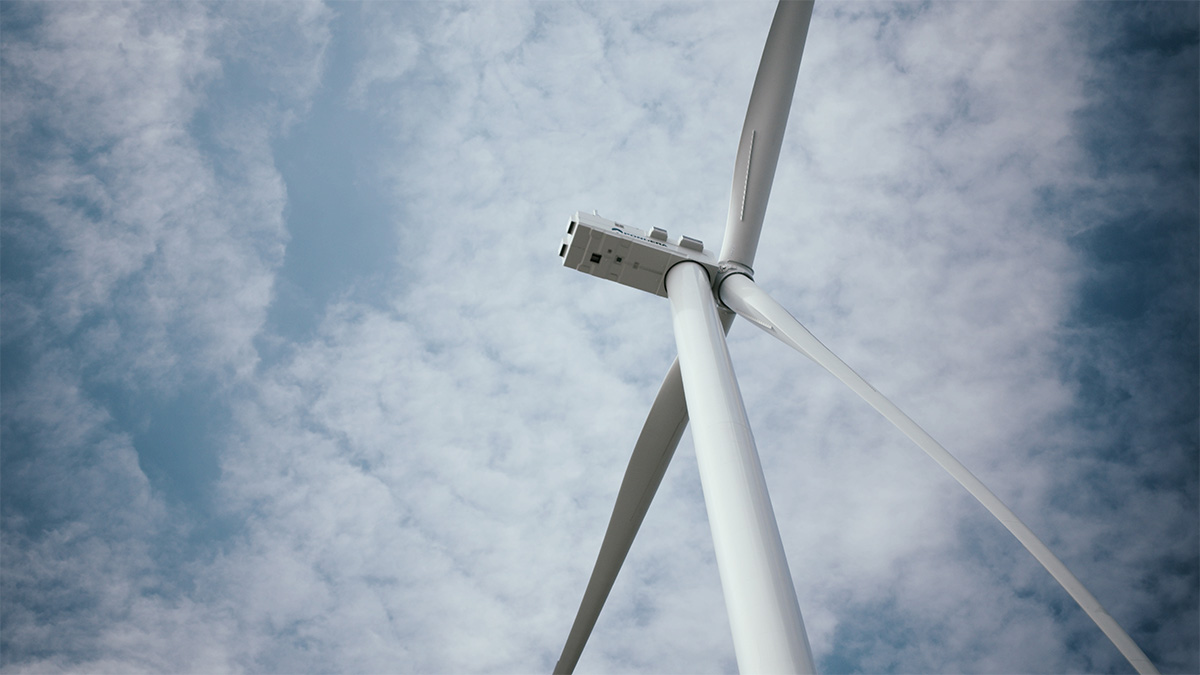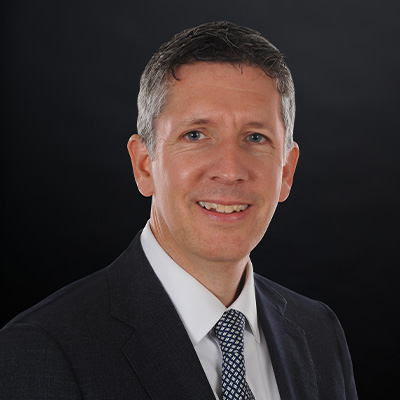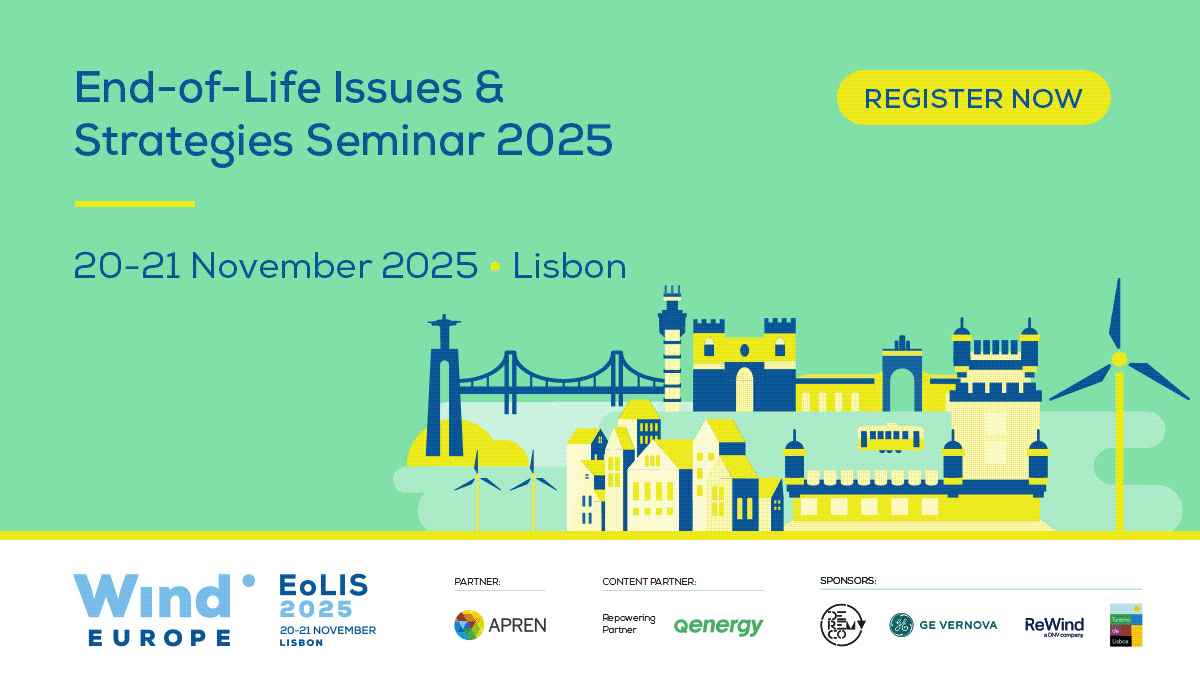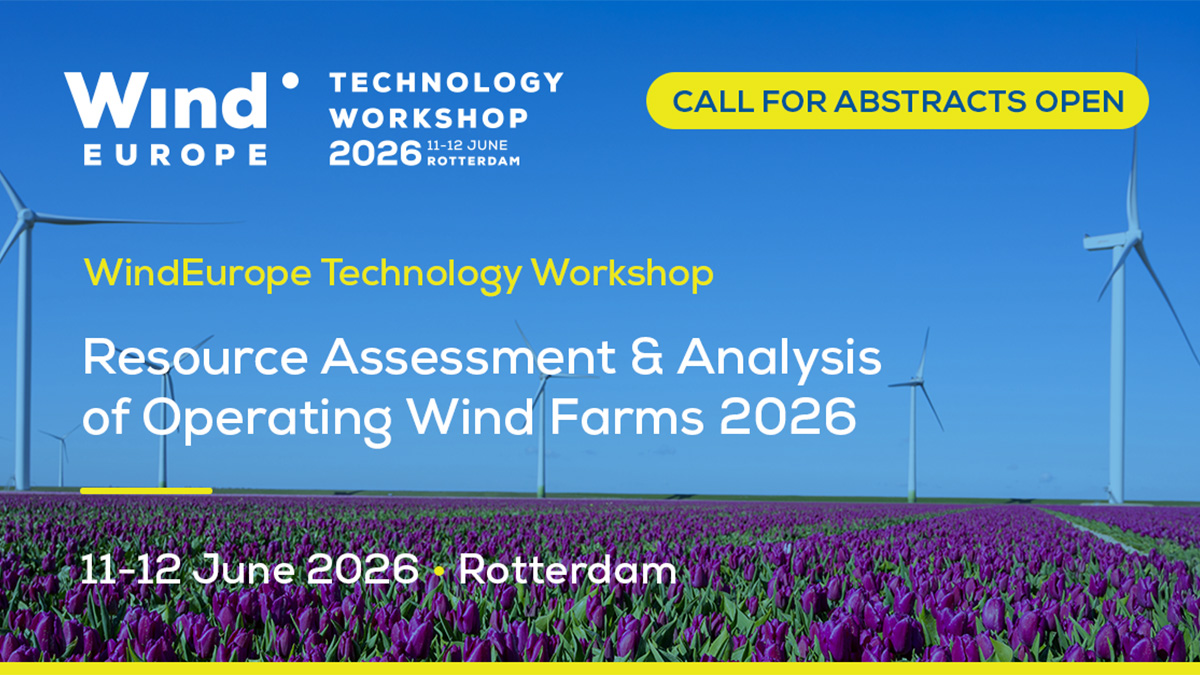WindEurope Bulletin
November 2025

7 November 2025
A word from the CEO
Dear WindEurope member,
The EU has now agreed its climate target for 2040. It aims to cut GHG emissions by 90% compared to 1990. But up to 5% of this can come from overseas carbon credits. Which means Europe aims to cut its actual (domestic) emissions by 85%. As part of the deal, the EU has also agreed to defer from 2027 to 2028 the extension of carbon pricing from industry and the power sector to individuals – for what we emit in our motor cars and home boilers.
And they’ve agreed they can review the 2040 target if the economic conditions change significantly. Previously the EU could only review its climate targets if the climate science changed.
The EU will now consider what sort of renewables targets it’ll set for 2040. They’re debating whether to have renewables targets or a “low carbon energy” (renewables plus nuclear) target. What matters more to us is:
- the EU and national governments committing to specific annual build-out volumes for wind; and
- their giving a big push on permitting, grids and electrification.
And getting progress on this really matters, because today we’re not building enough new wind. We will fall some way short of the 2030 targets the EU set for new wind. And as things stand things are not set to improve significantly enough beyond 2030.
On onshore wind, there are some good things happening. Not least in Germany which is set to build 5 GW of onshore wind this year and permit 15 GW. The UK, Ireland and Türkiye are also seeing good numbers on onshore. But Sweden and Finland are down on the strong growth they’ve seen in recent years. And the figures for France are also disappointing.
To give us a full picture on onshore, we’ve launched a members-only Onshore Market Survey. Do please fill it out if you can – your input will help everyone.
On offshore wind the outlook is very concerning. Europe wants 120 GW by 2030. But we only have 37 GW today, and we’ll be lucky to reach 70 GW as things stand. The business case just isn’t where it used to be and should be. We’ve seen failed auctions over the last year in Germany, France, the Netherlands, Denmark and Lithuania. And many projects that have won auctions in recent years are now struggling to reach final investment decision.
Governments are trying to help. Denmark and the Netherlands are moving away from negative bidding – and Germany is likely to follow them soon. The EU also want to help PPA projects through a new Tripartite Contract where they and national governments would do more to de-risk industry electrification investments.
More broadly we’re asking for a New Deal for Offshore Wind where:
- Governments aim to build 15 GW of offshore wind a year over 2031-40: 10 GW through CfDs and 5 GW through PPAs, with the CfD auctions starting asap; and
- in return the wind industry reduces costs by 30% and makes new commitments on jobs and investments.
We are hoping to land this at a Heads of Government Summit on offshore wind in Hamburg on 26 January. More on this here.
Kind regards,

Giles Dickson
Onshore Wind Market Survey – Share your insight
WindEurope’s onshore outlook to 2030 gives a consolidated view on installations over the rest of the decade. It informs policymakers and stakeholders about where the sector is headed and guides our advocacy. But first, we need your input! For the second time, we are conducting a market survey to gain deeper insights into the current landscape and future outlook for onshore wind expansion across European markets.
The survey should only take around 10-15 minutes. The information we wish to gather covers:
- political support;
- the economic environment;
- permitting and legal frameworks; and
- grids.
You can access the survey using the link here.
Thank you for your support!
Members’ Successes
Pondera Consult and Rebel deliver smart solutions to future-proof wind energy with battery integration
At one of the Netherlands’ largest ports, a 10 MW battery energy storage system (BESS) is being developed to enhance grid stability. The strategic location offers strong potential for storage, but also faces challenges such as limited space, grid congestion, and complex logistics. Pondera Consult – a company of Haskoning – brings over 25 years of renewable energy expertise and supports the full development process. In close collaboration with financial and PPA adviser Rebel Advisory, the team guides the developers through feasibility studies, permitting, stakeholder coordination and technical integration.
The location plays an important role in offshore wind construction and already hosts several onshore turbines. With wind capacity now operational, the focus has shifted to improving system flexibility and addressing local grid congestion. Pondera and Rebel are supporting the developer in integrating a BESS at the site. This requires a mix of technical, legal, organisational, and financial expertise to find workable solutions within the context of existing assets, emerging energy markets and evolving grid conditions.
Integrating a BESS into an existing grid connection and defining its role across the full range of energy market applications has become a key part of the development process. A feasibility study showed that surplus capacity from the existing 15 MW grid connection could potentially be used for battery storage. This would allow the project to contribute more flexibly to the energy system and help address local grid congestion. Selecting a suitable location for the battery within the port required coordination with the municipality, port authority and the grid operator. Flexibility and smart design were key to overcoming physical and regulatory constraints. In this case, the team had to carefully balance technical feasibility with spatial planning and safety regulations.
This battery initiative reflects a broader trend seen across Europe: combining wind energy with storage, not only in large-scale offshore projects but also in smaller, site specific solutions that help relieve grid congestion and support local energy systems. The BESS is being developed by Pronewable Development and Rebel Development to support the energy transition through battery integration. Their strength lies in complex projects, where they add value through technical and financial expertise, backed by dedicated advisors.
Joining forces with Haskoning
In 2024, Pondera Consult joined forces with Haskoning to strengthen its position as a leading consultancy in renewable energy. Haskoning is an independent international consultancy that combines engineering, design and consultancy services with software and technology. To date, they have contributed to over 60 GW of renewable energy projects worldwide, with a strong track record in offshore wind developments both in the Netherlands and internationally. They support project developers, investors, port authorities and governments in accelerating, de-risking, and scaling up renewable energy projects.
Green Eagle Solutions’ ARSOS Automation Suite Advances Autonomous Renewable Operations
Green Eagle Solutions, a European technology company specialising in automation for renewable energy operations, presents ARSOS Automation Suite, a SaaS platform that puts renewable operations on autopilot. The company will be present at WindEurope 2026 in Madrid, showcasing how automation can enhance efficiency, resilience, and grid compliance across renewable fleets.
Developed to enable more autonomous, efficient, and scalable renewable energy operations, the ARSOS platform allows operators, asset managers, and grid participants to automate core processes — including real-time monitoring, automatic curtailments and fault response — without requiring a full-time control centre.
Built to scale with growing renewable portfolios, ARSOS Automation Suite leverages advanced analytics and AI to transform operational data into actionable insights. This supports faster, data-driven decision-making and creates a connected environment for teams. The platform meets the highest cybersecurity standards and integrates easily with existing infrastructures.
Automation Across Every Layer of Renewable Operations
The ARSOS Automation Suite consists of specialised products that automate and monitor every layer of renewable operations:
-
- ARSOS O&M Robot automates up to 80% of control room activities for wind operators and Remote Operations Control Centres, providing 24/7 fault response and turbine monitoring. It adapts to environmental regulations and supports preventive strategies that extend turbine lifespan and availability.
- ARSOS G&M translates regulatory complexity into executable workflows, automating curtailments, ensuring continuous compliance, and unlocking access to TSO-driven opportunities such as intraday, balancing, and adjustment services.
- ARSOS APM offers unified supervision across entire renewable fleets, combining real-time dashboards with KPI-based insights to support data-driven performance management and strategic coordination.
- ARSOS MV/HV Substations centralises alarm management and real-time signal synchronisation for operators managing medium- and high-voltage substations, automating grid coordination through SCADA, RTU, or direct TSO integration.
- ARSOS CompactSCADA connects ARSOS’s cloud intelligence with local systems, ensuring automation and control continuity in low-connectivity environments. It serves as a local orchestrator for wind, solar, BESS, and substations, applying real-time automation protocols while reducing dependence on the cloud or OEM SCADA systems.
Aiming for Autonomous Renewable Operations at Scale
Through ARSOS Automation Suite, Green Eagle Solutions reinforces its commitment to making renewable operations more efficient, scalable, and autonomous. The company’s technology now performs over one million automations every month, connecting more than 60 GW of capacity across18 countries. This activity represents approximately 33% of Spain’s renewable energy market.
Events
EoLIS 2025 – Two weeks to go!
There’ll be 250+ participants – wind farm operators, developers, manufacturers and those working on circularity.
Here’s the event website – you can register here.
What’s in the programme?
- No more landfill from 2026 – what’ll happen to blade waste?
- Latest practices on lifetime extension
- Getting Governments to incentivise repowering
- Developments in blade recycling technology
- Creative re-use of old blades
- Recycling rare earths and permanent magnets
- Involving local communities in end-of-life decisions
- How will we decommission old offshore turbines?
We’ll look at these and other issues with speakers from industry, academia and government. Here’s a preview. And here’s the full programme.
You’ll have plenty of opportunities to swap notes with your peers too – including over Portuguese food and wine at the networking dinner on 20 November.
Technology Workshop 2026: Call for abstracts open!
WindEurope’s annual workshop on resource assessment and operating wind farm analysis is back on 11-12 June 2026 in Rotterdam! But first, we need your input…
We’ve just launched a Call for Abstracts for the workshop – a chance for you to shape the event scope, put your research in the spotlight and boost industry knowledge.
What are we looking for?
- Stick to prescribed topics to ensure correct scoring.
- New, unpublished data-driven research that boosts sector knowledge.
- Keep abstracts non-commercial and under 500 words.
The deadline is 30 January 2026 – but we encourage early applications! We hope to hear from you soon!
Partnered Events
CALL FOR PAPERS: 10th Hybrid Power Plants & Systems Workshop
Organised by Energynautics, this workshop on 5-6 May in Sardinia is the place to explore cutting-edge developments, market trends, and real-world case studies presented by more than 50 international experts from industry and academia.
Why Contribute?
Join leading experts to exchange knowledge, present your innovations, and help shape the future of sustainable energy systems. Papers presented at the workshop will be published in the IET Digital Library and IEEE Xplore and submitted for indexing in IET Inspec, Ei Compendex, and Scopus—boosting your research’s global visibility. Speakers and poster presenters benefit from a reduced participation fee. Share your work, inspire with practical ideas, and connect with an international community driving the energy transition.
Call for Papers Deadline: 18 January 2026
Don’t miss your chance to take the stage. Visit the workshop website for more details on how to submit your abstract and become a speaker.









